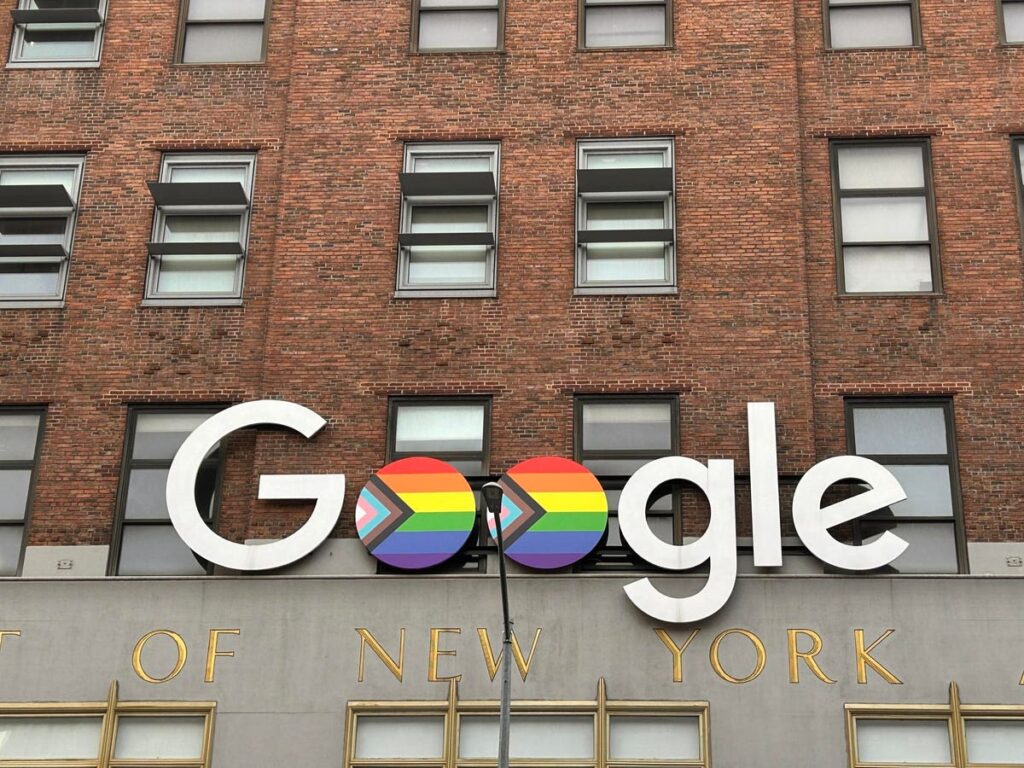When I was younger, I had a lovely older neighbor who’d graduated from Harvard as a historian at a time when there was deep antisemitism. He’d share facts and printed old newspaper articles he’d preserved over the years to remind me of the many ways that businesses of every size turned a blind eye to fascism in Europe in the 1930s and significantly profited off of it.
All of this makes the head-spinning declarations of loyalty to the Trump Administration that many companies have shown in recent weeks rather curious. Businesses ranging from Google to Meta to Target who once rushed to embrace Diversity, Equity, and Inclusion (DEI) “initiatives” and celebrate Black History Month have rushed to erase signs of solidarity following the Administration’s various Executive Orders.
Many consumers and shareholders feel betrayed. A new Harris poll found that four in 10 Americans have shifted spending to align with their moral views in recent months. Specifically the poll results highlighted:
- “31% of Americans reported having no interest in supporting the economy this year – a sentiment especially felt by younger (gen Z: 37%), Black (41% v white: 28%), and Democratic consumers (35% v 29% of independents and 28% of Republicans).
- A quarter (24%) of respondents have even stopped shopping at their favorite stores because of their politics (Black: 35%, gen Z: 32%, Democratic: 31%).
Further, several of Target’s shareholders filed a class action lawsuit against the company on January 24, after the company said it would end DEI initiatives this year, including a program to support Black-owned businesses that it adopted following the 2020 murder of George Floyd by a Minneapolis police officer.
This betrayal shouldn’t surprise anyone who has cracked open a history book. In the 1930s Hugo Boss made uniforms for the Nazis. IBM supplied the numeric codes tattooed on those ushered into the gas chambers. And Bayer –the aspirin company– is the reincarnation of IG Farben; a huge donor to Nazi political campaigns, a manufacturing beneficiary of Hitler’s invasions of European countries, and a shareholder in the company that produced the gas the Nazis used to exterminate millions of people.
Horrifically, the Holocaust’s atrocities turned out to be a whole lot less interesting to the corporate world than how it could be used to profit their businesses. And as Succession’s Shiv Roy declared in a scene with a potential whistleblower: “We don’t get embarrassed.”
Let’s run some numbers on where America is and why embracing difference and the uniqueness of people’s lived experiences matters. It’s not just the right thing to do, it’s good for businesses’ bottom line too.
The US Presidential election between Trump and Harris was extremely close. For votes counted through November 20th, Trump’s margin over Harris was only 1.62%, according to PBS. On a percentage basis, Trump’s 2024 winning margin was the fourth smallest since 1960.
Another contributing factor to the election results is that voter purges have been on the rise election over election and purges historically impact people of color, especially Black voters, according to the NYT. Furthermore, the non-partisan organization League of Women Voters, as of November 6, 2024, tracked 64 anti-voter lawsuits filed in 2024 that sought to sow distrust in the election. Factor in the recent YouGov poll which found that 19 million people who voted for Biden in 2020 abandoned Harris in 2024, and one-third of those cited the war in Gaza in their decision. It was the top reason provided, beating out the economy and immigration, costing Harris more than 6 million votes. In states that swung from Biden to Trump in 2024, 20% cited Gaza in their decision to abstain from voting entirely.
Bottom line: Trump did not win the election by a landslide and the majority of people in the US don’t support fascism or authoritarianism. Even current polls show Trump’s popularity with voters sitting at only 47%. People want to support politicians and businesses that align with their values. And that is exactly what many people are now doing so businesses everywhere need to stand with the majority.
The widely reported mass user exodus from X to alternative platforms such as Bluesky has been accelerating steadily and bleeding money from X. The platform has become so alarming to several major advertisers that Elon Musk has mounted multiple lawsuits alleging boycotts. Since Musk endorsed Germany’s far-right AfD party a month ago, Tesla’s sales are tanking across Europe. In some countries like Spain, Tesla’s sales are down as much as 75% year-over-year. The stock price is down with analysts saying that Tesla’s favorability rating is nearing all-time lows and that this could hurt near-term sales. The unfavorable view of the brand is likely due to Musk.
Target’s share price took a steep hit after eliminating DEI initiatives that its own shareholders have filed a lawsuit charging it with fraud. Meanwhile, Costco’s share price is up almost 15% after refusing such rollbacks (a decision backed by 98% of voting shares). Costco also has reported a surge in memberships compared to Sam’s Club which is facing declining memberships.
“It’s a sign that consumers with liberal views are starting to use their wallets in response to politics in the private sector,” noted the Harris poll.
While a mass exodus from a platform like Meta could be logistically challenging –not least because the US represents such a small percentage of its user base– and such a move has yet to materialize, it would be folly to dismiss it out of hand. More and more users are questioning Meta’s commitment to fighting disinformation and online harassment. As the US TIktok ban loomed, users swarmed to Chinese alternative RedNote, signaling both an appetite and capacity for swift mass mobilization. Such a mass abandonment of Facebook or Instagram alone would have tectonic financial implications, and not just for Meta; the carnage would cascade through the millions of businesses including many small businesses that depend on its advertising model. Even the threat of such shifts could trigger investor anxiety with consequences comparable to past service outages – a 5% dip in share price, equivalent to about $47 billion in losses. Target’s shareholders have already set a precedent for how this might happen.
Ultimately, what the numbers tell us is that while some of the biggest companies are lining up to abandon their DEI policies to do business with the Trump Administration, they may find themselves at odds with their customer base who have very different lived experiences and will put their money where their mouth is. This reckless lack of foresight by CEOs should alarm shareholders because it’s consumers and small businesses who hold the power of the purse. Without them, these businesses will cease to exist.
*Disclosure: I was previously on the Board of Directors of the League of Women Voters.
Read the full article here











